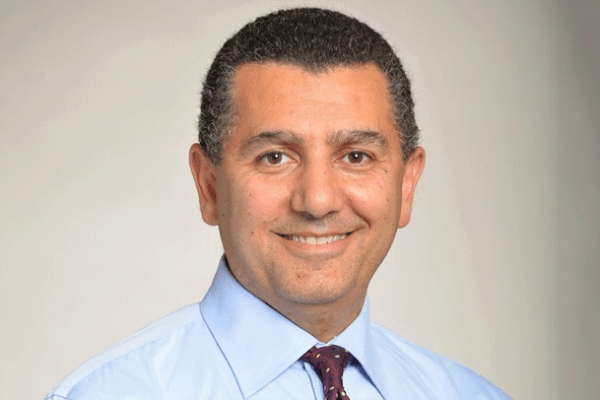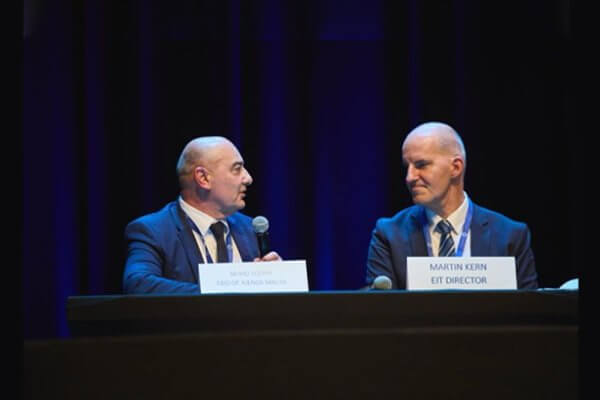- 15 Global Companies Launch Trusted Tech Alliance for Secure Digital Infrastructure
- Singapore Management University Launches Business AI Master’s Programme
- Cochin Shipyard Seeks Global Partners to Expand International Ship Repair Footprint
- OpenText Names Former IBM Americas President Ayman Antoun as CEO
- Fintech Company Network International Appoints Ashish Jain as Group CFO
News Updates
Fifteen major technology companies from Africa, Asia, Europe and North America have announced the launch of the Trusted Tech Alliance (TTA), a cross-border initiative aimed at strengthening global cooperation on secure and reliable technology ecosystems.
The announcement was made during the Munich Security Conference, underscoring the growing importance of trusted digital infrastructure in global economic and geopolitical stability.
The Trusted Tech Alliance brings together leading firms across cloud computing, telecommunications, semiconductors, software, artificial intelligence and digital infrastructure. The coalition is designed to promote international collaboration based on shared principles of transparency, security, resilience and data protection. It will focus on building interoperable and secure digital systems while encouraging cross-border policy alignment. The initiative also seeks to support open markets, responsible innovation and secure supply chains amid increasing fragmentation in global technology ecosystems.
The 15 founding companies include:
- Anthropic
- Amazon Web Services
- Cassava Technologies
- Cohere
- Ericsson
- Google Cloud
- Hanwha
- Jio Platforms
- Microsoft
- Nokia
- Nscale
- NTT
- Rapidus
- Saab
- SAP
The founding members emphasized that trusted technology is now central to economic competitiveness, national security and enterprise continuity. By fostering collaboration between companies across multiple regions, the Alliance aims to reduce systemic risks in digital infrastructure and strengthen confidence in emerging technologies, including AI-driven enterprise solutions.
Industry leaders involved in the initiative stated that the platform will serve as a forum for dialogue between private sector stakeholders, policymakers and regulators, helping to shape governance frameworks for next-generation technologies.
The launch of the Trusted Tech Alliance reflects a broader shift within the global technology sector toward coordinated standards, resilient digital supply chains and secure AI deployment, issues that remain high on the agenda for enterprise decision-makers and government leaders worldwide.
Singapore Management University (SMU) has introduced a new Master of Science in Business AI, targeting a growing shortage of business leaders who can translate artificial intelligence capabilities into...
Cochin Shipyard Limited, India’s premier shipbuilding and maintenance facility, has invited Expressions of Interest (EoI) from internationally reputed companies, firms and agencies to serve as...
OpenText has appointed Ayman Antoun as its new Chief Executive Officer and a member of the Board, with effect from April 20, 2026, marking a key leadership transition at the enterprise information...
Network International has appointed Ashish Jain as its new Group Chief Financial Officer, effective January 2026. In his role, Jain will be responsible for overseeing the company’s financial strategy,...
Sony Group Corporation and TCL Electronics Holdings Limited have signed a memorandum of understanding (MoU) to pursue a strategic partnership in the home entertainment field. The agreement lays the...
Vitrealab, a Vienna-headquartered deeptech company focused on next-generation display solutions, has closed a $11 million (€9.4 million) Series A funding round to advance the development of practical...
Maltese startups are about to get a €30 million boost, as the European Institute of Innovation and Technology (EIT) and the Government of Malta have signed a new Memorandum of Understanding (MoU) to...
Martina Maya, Founder of the Swiss-born, neuroscience-driven experience HypnoBond, reveals how our brain shapes burnout, self-worth, and professional identity
Toufic Koussa, Co-Founder and CEO of Whish Money, stands at the forefront of a financial revolution. Leading one of the region’s most dynamic fintech companies, he is reshaping how people spend, save,...
















